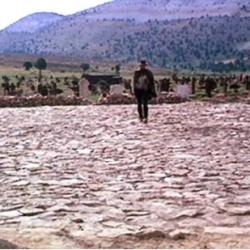Or consider the role and duty of a ferry boat captain. Her job is to pilot a ferry boat from Point A to Point B and back again according to schedule while ensuring the safety of her passengers. That is her primary responsibility. It’s what she was hired to do and what she is paid to do.
That duty and responsibility means that she must not stray from her assigned route. Any such deviation will put her ferry and its passengers off schedule. It could also expose her passengers to added risk, endangering their safety and thus betraying her duty as ferry boat captain.
But one day not too long ago, several ferry boat captains did exactly that. With little thought for their unchanging daily duty, they turned their boats around and, instead of taking their passengers safely to shore in a timely manner, they carried them to the middle of the river.
They did this because Capt. Chesley Sullenberger, the pilot of US Airways Flight 1549, had just landed his Airbus 320 right there, on the surface of the Hudson River.
Ferry boat Capt. Brittany Catanzaro was not hired to rescue airline passengers from the river. That was not her job. She wasn’t hired to do that and she wasn’t being paid to do that. She was responsible for the passengers aboard the NY Waterways ferry Thomas H. Kean, and not for the passengers of US Airways Flight 1549. Those passengers were US Airways’ responsibility. And water rescue is the job of the Coast Guard or of the FDNY or NYPD.
I’m not sure exactly where in the Hudson Capt. Sully touched down, actually. He may have been closer to the Weehawken side of the river, in which case the stranded passengers perched on the slowly sinking airplane would have fallen under the jurisdiction of New Jersey’s rescue personnel.
None of those responders, however, hesitated for even a second that day to consider such jurisdictional niceties. They all sprang into action without any thought as to who might bear specific or exclusive responsibility for the people stranded in the river.
The very idea of “exclusive responsibility,” in fact, would have seemed horrifying.
Capt. Catanzaro and Vincent Lombardo, captain of another NY Waterways ferry, arrived at the plane within just a few minutes of its touching down in the river, followed soon after by Circle Line ferries and FDNY marine units. They all responded so quickly because they all knew — by training, or by instinct, or by virtue of just being human — that it’s foolish to debate over jurisdiction, or to imagine that the responsibility to act belonged only to one agency and not to any other.
The passengers on that slowing sinking plane were headed to Charlotte and then, from there, to Seattle and to whatever business awaited them in those places. They had no previous relationship to the ferry boat captains or to the passengers on those ferries before Capt. Sully expertly splashed his plane down onto the river on which they were floating. And after that crazily beautiful landing, the only relationship they all shared was that of the crudest most basic kind — a shared humanity and physical proximity.
But that basic relationship was enough for the people on those ferries to recognize, instantly, that it made them responsible. It was enough, even, for them to put every other responsibility they had on hold. No one boarded those ferries expecting to spend the rest of their afternoon plucking strangers out of the water. That wasn’t their job. Like the Samaritan in Jesus’ story, those people had places to be and jobs to do. They were just trying to get to Manhattan or to Weehawken so that they could get on with whatever those other duties and responsibilities were.
But then their circumstances changed and thus their responsibilities changed, because they knew that’s how it works.
It would have been wrong for those commuter ferries and sight-seeing boats to “pass by on the other side.” It would have been wrong to tell themselves that those soaked and sinking strangers were the exclusive responsibility of someone else — the Coast Guard, the FDNY or US Airways — and not their responsibility too. Because (go ahead, say it with me) responsibility is never exclusive, binary and competitive. It’s always mutual and complementary.
We all know this in extraordinary situations, but somehow we tend to forget it in our ordinary lives. Sometimes we choose to forget it because, after all, we have places to be and our own jobs to do, and we imagine that our own lives will be easier if we could somehow exclude ourselves from mutuality.
But mutuality makes our lives easier, not harder. Mutuality isn’t a burden. “Bear one another’s burdens,” the apostle Paul wrote. But some selfish, reptilian part of our brains recoils at the idea — I’m having enough trouble bearing my own burdens, thankyouverymuch. The last thing I need is to get saddled with everyone else’s too. I’m just trying to get to Jerusalem or to Weehawken. I’ve got enough on my plate as it is.
And thus we avoid helping and we avoid being helped. And then we construct ridiculous intellectual justifications for this rejection of mutuality. “Either/Or!” we declare. “Never Both/And.”
Extraordinary circumstances can break through our protective shell and remind us that we know better, and that we can be better and act better and live together better in a better world.
I just wish it didn’t take an Airbus 320 splashing down out of the sky to remind us of that.












